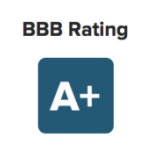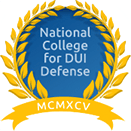Elizabeth NJ Identity Theft Attorneys
The negative impact that identity theft can have on victims has drawn significant publicity in recent times. The issue is so significant to law enforcement that the Federal Trade Commission has set up a government website for identity theft. Lawmakers in New Jersey very sensitive to the damage that can result from someone stealing an identity to secure a fraudulent credit cards, a loan (e.g. mortgage, car, etc.), medical insurance, a driver’s license or other benefits. To deter this type of conduct, serious penalties are imposed against those charged and convicted for identity theft in Union County and elsewhere in the state. If you were arrested in Elizabeth, Union, Clark, Springfield or Westfield on this charge, you need to consult a skilled attorney immediately. At the Law Offices of Jonathan F. Marshall, the defense team is comprised of eight savvy criminal lawyers, several of whom are former prosecutors. We have over a century of combined experience to rely upon in order to formulate the most effective plan for escaping a guilty finding. For an immediate free consultation with a lawyer at the firm, contact our Union NJ Criminal Office at 908-272-1700.
How Does The Law Establish The Grading (i.e. Severity) of An Identity Theft Offense?
In New Jersey, the offense of identity theft is set forth under N.J.S.A. 2C:21-17 and establishes three (3) grades of this offense. Second degree identity theft is the most serious form of this charge and arises where five (5) or more victims are involved or, alternatively, where the amount involved is $75,000 or more. Third degree identity theft is triggered under one of three scenarios: (1) the accused has a prior conviction of identity in an amount of $500 or less; (2) the identity theft involves a value of at least $500 but less than $75,000; or (3) the charge involves at least two (2) but less than five (5) victims. Fourth degree identity theft applies where there is one victim and less than $500 involved.
What Constitutes Identity Theft Under N.J.S.A. 2C:21-17?
There are five (5) varieties of conduct that fall under the umbrella of identity theft under New Jersey Law. It is a violation of 2C:21-17 to engage in any of the following for the purpose of obtaining a benefit or to injure someone:
- Impersonate or assume a false identity;
- Pretend to be a representative of someone or an organization;
- Make an oral or written statement that is misleading with respect the identity of someone; or
- Obtain personal information of another person and use or conspire to use the information.
In order to give rise to a violation, the conduct must be intentional. Unless the false representation concerning identity is with the purpose to be wrongfully obtain a benefit or hurt/defraud another, it should not result in a conviction under 2C:21-17. There is, however, an exception in the statute for instances where someone uses a fake identification to misrepresent age for purposes of illegally purchase alcoholic beverage (i.e. alcohol possession underage) or tobacco.
Does Identity Theft When Someone Misrepresents Their Identify To The Division Of Motor Vehicles
Yes. And in our criminal defense practice this is a recurring scenario in terms of identity theft charges. What often happens is that the Division of Motor Vehicles discovers that someone has two (2) or more drivers licenses and then pursues this offense, as well as imposing a suspension. Common scenarios involve a person with a suspended license or poor driving record who poses as a brother, sister, cousin, friend, etc., to obtain another license. There are also those situations where someone lacks documentation because they are an illegal alien and utilizes the information of someone who has immigration status to obtain a license. When this type of identity theft is involved, an entirely separate fraudulent driver’s license offense comes into play.
What Penalties Can Be Imposed By The Court?
The second degree crime of identity theft has significant consequences. There is a presumption of incarceration for a term of between five (5) and ten (10) years. The court may also impose a fine as high as $150,000. A third degree crime for this offense carries a presumption sentence of at least three (3) years and as much as five (5) years. The maximum fine is $15,000. Fourth degree identity theft involves a fine of up to $10,000 and 18 months in state prison.
Can The Court Order Restitution?
Yes. New Jersey Law provides for restitution to victims of identity theft. The restitution can include all actual money lost, as well as the cost of restoring the victim’s credit history. In addition, N.J.S.A. 2C:21-17.4 allows the victim to institute an independent cause of action in the Civil Division wherein they are entitled to recovery three (3) times the value of all costs incurred by the victim as a result of the defendant’s misconduct.
Westfield NJ Identity Theft Defense Lawyer
If you are facing an identity theft charge in Union County, the violation and any proceedings associated with it, including presentation of your case to a grand jury to seek an indictment, shall take place in Elizabeth NJ. This is the location of the Union County Superior Court. The attorneys at our firm have decades of experience defending clients charged with third and second degree crimes like identity theft in Cranford, Roselle Park, Hillside, Summit, Rahway and other municipalities in the county. What know what it takes to successfully defend someone like you utilizing many years of knowledge and familiarity with the court system in Elizabeth. To speak to a former prosecutor on our staff immediately, call us at 908-272-1700. A lawyer is available to help you now.












